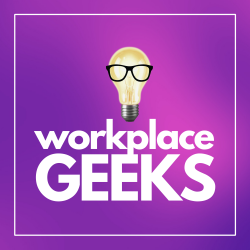To provide the best experiences, we use technologies like cookies to store and/or access device information. Consenting to these technologies will allow us to process data such as browsing behaviour or unique IDs on this site. Not consenting or withdrawing consent, may adversely affect certain features and functions.
The technical storage or access is strictly necessary for the legitimate purpose of enabling the use of a specific service explicitly requested by the subscriber or user, or for the sole purpose of carrying out the transmission of a communication over an electronic communications network.
The technical storage or access is necessary for the legitimate purpose of storing preferences that are not requested by the subscriber or user.
The technical storage or access that is used exclusively for statistical purposes.
The technical storage or access that is used exclusively for anonymous statistical purposes. Without a subpoena, voluntary compliance on the part of your Internet Service Provider, or additional records from a third party, information stored or retrieved for this purpose alone cannot usually be used to identify you.
The technical storage or access is required to create user profiles to send advertising, or to track the user on a website or across several websites for similar marketing purposes.
 Plain speaking doesn’t always go down well, especially on social media and especially when cultural differences come into play. I recently had a friend intervene on my behalf to explain to an increasingly exasperated LinkedIn adversary that I wasn’t being rude, I was just ‘Northern’. This may well be a stereotypical Northern trait. If so, it is one that is shared by Simone Fenton-Jarvis, although then again it is one of the very few stereotypical things about her. (more…)
Plain speaking doesn’t always go down well, especially on social media and especially when cultural differences come into play. I recently had a friend intervene on my behalf to explain to an increasingly exasperated LinkedIn adversary that I wasn’t being rude, I was just ‘Northern’. This may well be a stereotypical Northern trait. If so, it is one that is shared by Simone Fenton-Jarvis, although then again it is one of the very few stereotypical things about her. (more…)











 In the latest episode of Workplace Geeks, Chris and Ian interview serial entrepreneur and purpose-driven pirate Sam Conniff, to explore his new project Uncertainty Experts. Described by Sam as an ‘interactive learning documentary’, their discussions explore the motivations behind his latest venture (with collaborators Katherine Templar Lewis, Dr Avri Bilovich and Dr Vivienne Ming), its inventive design, and Sam’s commitment to academically evaluate its impact.
In the latest episode of Workplace Geeks, Chris and Ian interview serial entrepreneur and purpose-driven pirate Sam Conniff, to explore his new project Uncertainty Experts. Described by Sam as an ‘interactive learning documentary’, their discussions explore the motivations behind his latest venture (with collaborators Katherine Templar Lewis, Dr Avri Bilovich and Dr Vivienne Ming), its inventive design, and Sam’s commitment to academically evaluate its impact. 






















May 12, 2022
From commuting to computers, finding balance in the hybrid workplace
by Anni Hallila • Comment, Flexible working, Wellbeing